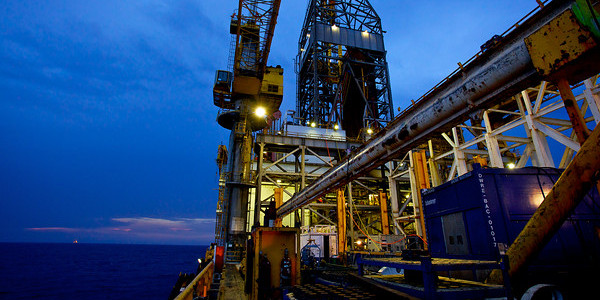By Seth Onyango
Africa’s vast deposits of natural gas and oil have gained renewed international prominence as a shift in global markets away from Russia intensifies on the back of the Ukraine crisis.
Experts expect Europe to ramp up investments into Africa’s natural gas sector to shock-absorb its economy from the unfolding crisis in Ukraine and the potential for energy supplies disruption in the future.
In January, the European Union drafted a proposal to classify natural gas projects as “green energy” investments, potentially allowing the block to invest in the sector and at the same time contribute to what African nations are increasingly calling a “just transition” in the energy sector as the continent taps into gas and uses the proceeds to build on its huge green energy opportunities.
According to the Brookings Institute, the result of the January decision is that Europe is likely to be a key financer. However, there may be a number of international players eyeing Africa’s gas and renewables opportunities. And Russia’s invasion of Ukraine is focusing attention with startling speed.
With BP divesting its stake in Russian state-oil company Rosneft, it may also look for new business opportunities in Africa.
Of interest is Africa’s more than 630 trillion cubic feet of proven natural gas reserves that the EU would seek to integrate into its energy mix.
Statista figures show Nigeria accounts for the bulk of the continent’s natural gas deposits, boasting more than 200 trillion cubic feet in natural gas reserves.
Algeria and Mozambique follow, with 159 trillion cubic feet and 100 trillion cubic feet, respectively.
According to S&P Global Platts, nearly 40% of global new gas discoveries in the last decade were in Africa, mainly in Senegal, Mauritania, Mozambique and Tanzania, with 17 countries already producing gas with seven net exporters and seven net importers, according to the African Energy Commission.
According to Brookings Institute, a few African countries have sensed the long-term growth opportunities from the Ukraine-Russia conflict.
“Specifically, Africa’s natural gas could reduce Europe’s dependence on Russian energy,” it said in a recent publication.
Already, Germany has pressed the breaks on the Nord Stream 2 project with Russia in a major policy shift in response to Moscow’s widely condemned invasion of Ukraine.
Germany’s move comes amid pressure for Europe to cut its energy reliance on Russia and the Kremlin’s likelihood to shut off gas supplies in retaliation to harsh sanctions.
Tanzania’s president Samia Suluhu Hassan revealed last month the tensions in Ukraine were generating growing interest in the East African state’s gas reserves, the sixth-largest in Africa.
Tanzania has an estimated 57 trillion cubic feet of gas reserves but disagreements with oil corporations over production-sharing blocked investments into the sector.
Hassan, however, has revamped negotiations with energy firms in a bid to attract $30 billion in foreign investment to revive the construction of offshore liquefied natural gas projects in 2023.
Vijaya Ramachandran, director for energy and development at the Breakthrough Institute in Berkeley, California told bird that while Africa has enough gas reserves, building gas pipelines from Africa to Europe will be challenging.
“But the investment is worthwhile, both from an economic and a geopolitical perspective. Nigeria is enthusiastic about exporting gas to Algeria, which can then be exported to Europe. An enormous new gas field, called the GTA Field, will place Senegal and Mauritania amongst Africa’s top gas producers when it comes online in 2023,” she said.
“The proximity of this field to Europe will be an advantage for both countries. Floating plants that can directly transport liquefied natural gas (LNG) to Europe will also be advantageous for sub-Saharan African producers, especially if Germany and other European countries invest in LNG terminals to regassify liquid fuels.”
Europe’s bid to tap into African gas also comes amid progress being made to build a pipeline infrastructure linking the two continents.
Algeria, Niger, and Nigeria recently agreed to construct the multi-billion dollar, 4,128 km Trans-Saharan Gas Pipeline, running through the three countries into Europe.
According to Euractiv, once completed, the pipeline will transport 30 billion cubic metres of gas per year.
Spain and Italy are also seeking ways to boost their imports from Libya and Algeria and ways to ship them to the rest of Europe.
Euractiv reported that the EU is also financially backing the EastMed pipeline that will connect the European network to the offshore gas fields in Cyprus, Israel, and Egypt.
The 2,000 km Transmed pipeline from Africa will be completed in 2027, connecting Algeria to Italy via Tunisia. Algeria is already Italy’s second-largest gas exporter after Russia.
Economist and senior economics lecturer at the University of Nairobi, Dr Samuel Nyandemo told bird that with proper investment, Africa can meet Europe’s gas supplies, while raking in billions from the sale of the commodity.
“Countries like Algeria and southern parts of Africa can be alternatives even at lower costs,” he said.
According to Brookings Institute, “several other countries could similarly benefit from Europe’s energy diversification, including Senegal, where 40 trillion cubic feet of natural gas were discovered between 2014 and 2017 and where production is expected to start later this year.
“Nigeria, already a supplier of liquified natural gas (LNG) to several European countries, is also embarking with Niger and Algeria on the Trans-Saharan Gas Pipeline to increase exports of natural gas to European markets.”
Credit | How we made Africa/bird story agency

